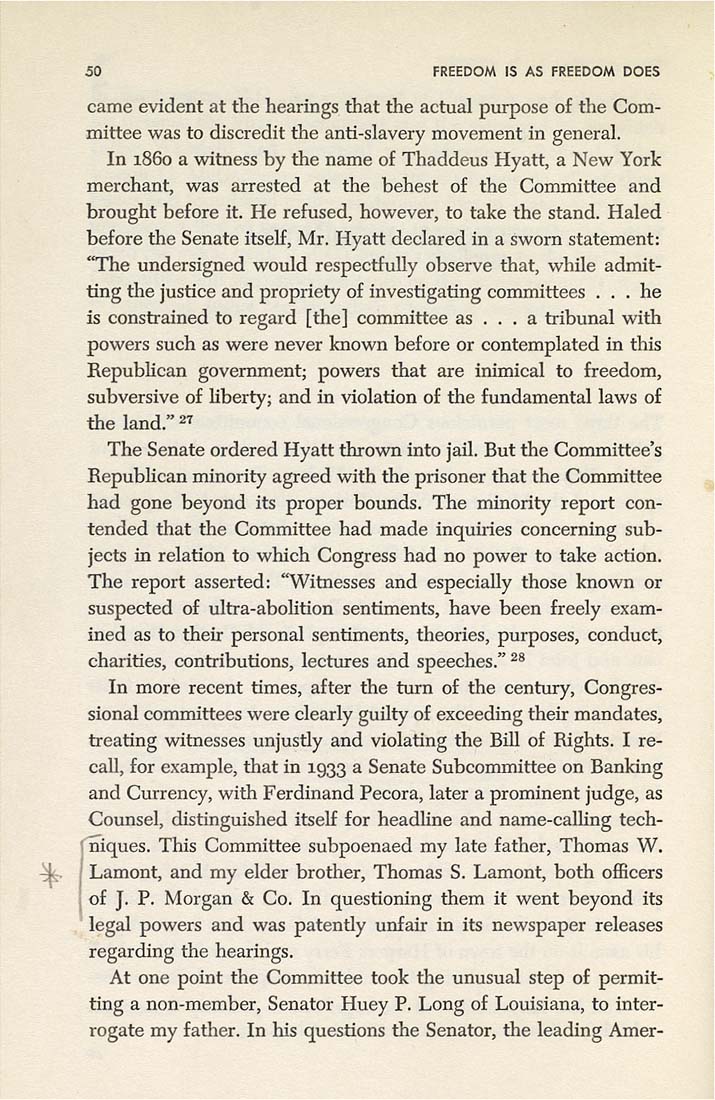50 FREEDOM IS AS FREEDOM DOES
came evident at the hearings that the actual purpose of the Com¬
mittee was to discredit the anti-slavery movement in general.
In 18G0 a witness by the name of Thaddeus Hyatt, a New York
merchant, was arrested at the behest of the Committee and
brought before it. He refused, however, to take the stand. Haled
before the Senate itself, Mr. Hyatt declared in a sworn statement:
"The undersigned would respectfully observe that, while admit¬
ting the justice and propriety of investigating committees ... he
is constiained to regard [the] committee as ... a tiibunal with
powers such as were never known before or contemplated in this
KepubHcan government; powers that are inimical to freedom,
subversive of Hberty; and in violation of the fundamental laws of
the land." "
The Senate ordered Hyatt thrown into jail. But the Committee's
Republican minority agreed with the prisoner that the Committee
had gone beyond its proper bounds. The minority report con¬
tended that the Committee had made inquiries concerning sub¬
jects in relation to which Congress had no power to take action.
The report asserted: "Witnesses and especially those known or
suspected of ultra-abolition sentiments, have been freely exam¬
ined as to their personal sentiments, theories, purposes, conduct,
charities, contiibutions, lectures and speeches." ^^
In more recent times, after the turn of the century, Congres¬
sional committees were clearly guilty of exceeding their mandates,
tieating witnesses unjustly and violating the Bill of Rights. I re-
caU, for example, that in 1933 a Senate Subcommittee on Banking
and Currency, with Ferdinand Peeora, later a prominent judge, as
Counsel, distinguished itself for headline and name-calhng tech-
Iniques. This Committee subpoenaed my late father, Thomas W.
Lamont, and my elder brother, Thomas S. Lamont, both ofiicers
I of J. P. Morgan & Co. In questioning them it went beyond its
legal powers and was patentiy unfair in its newspaper releases
regarding the hearings.
At one point tiie Committee took the unusual step of permit¬
ting a non-member, Senator Huey P. Long of Louisiana, to inter¬
rogate my father. In his questions the Senator, the leading Amer-
|








